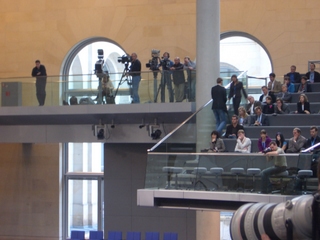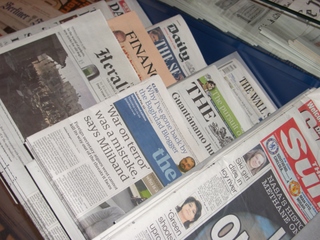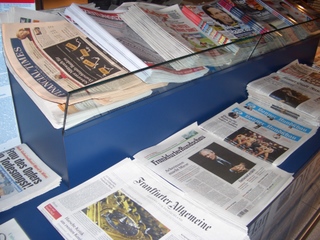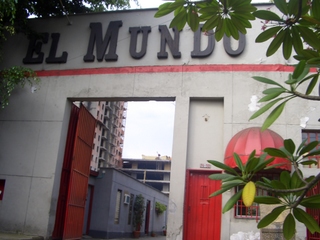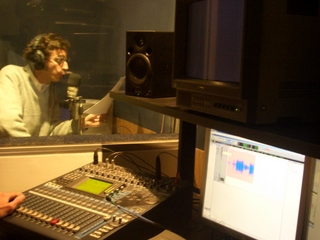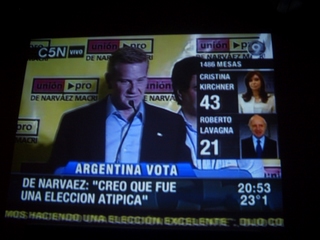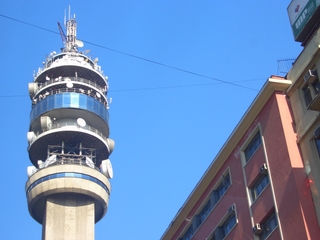The Commodification of News – African Experiences
Most African governments and key players in the field of development cooperation are now repeatedly arguing that Millennium Development Goals (MDGs) will not be met by 2015. They cite lack of financial resources and hostile economic environments as the most visible hurdles. Many of them hardly address the lack of political will and misuse of existing resources as areas in need of urgent attention. Empirical evidence available on performance indicators for MDGs shows that it is too early for governments in developing countries to give up meeting targets as we have just gone past the midpoint.
Anti-poverty campaigners on the other hand have cited the increasing poverty and inequality as key issues needing urgent redress. Most importantly, they have sought to celebrate good performance where it has been identified and have argued repeatedly that a lot of governments can achieve and even exceed existing MDGs related targets. And all of them affirm that citizen’s efforts to hold their governments to account must be up-scaled.
The media has been a critical player in projecting the above situations and will continue to be one of the major actors in key processes directed at building a global movement for the accelerated achievement of MDGs.
If one is to count the number of media outlets and products Africa produces every day, the volumes and numbers are phenomenal. It is a cause for celebration in terms of diversity and pluralism. But if you spend a bit more time doing an in-depth evaluation and critical analysis, the quality of the content generated and variegated ownership, makes one shudder at times.
If you start with cases where media is predominantly state-run as is the case with Zimbabwe and Namibia, the government functionaries reduce all media work to simple reportage on what they perceive as good performance. The media practitioners find themselves embedded within governmental processes and even when left to themselves, they just ape their master and become very big megaphones for the government.
The privately owned media is often viciously attacked and dismissed as destructive in terms of what mainstream politicians call nation-building. Its critical engagement with activities of government has earned this type of media two dominant labels: independent or opposition.
Practitioners in this section of the media often see themselves as champions of different causes and can be credited with pushing further the frontiers of media freedom and liberalization of the airwaves. Indirectly, struggles of this nature spawn different modes of journalism and this is the bedrock of processes that help citizens to hold their governments to account for promises and pledges made to their different constituencies. In our case, it is the promises arising from the Millennium Declaration and deliverables set out in millennium development goals that we will focus on.
Taking into account some of our key campaign interests, we recognize the importance of media freedom as a key ingredient for providing citizens in citizen’s efforts to pressure governments to eradicate poverty, dramatically lessen inequality, and achieve the Millennium Development Goals by promoting the voices and views of those campaigning for public accountability, just governance and fulfilment of human rights.
Our experience in Africa shows us that in countries where media freedom is relatively respected, citizens have had more access to media on privately owned FM stations for example in countries like Mali, Ghana, Senegal, Zambia and community radios in South Africa. Most of the coalitions in Africa affirm that on their cross cutting activities focussing on advocacy for increased budget allocation enhancing social service delivery and fighting hunger. Areas of immediate interest will be monitoring education, health (maternal health) and agriculture in order to measure progress against existing commitments.
Ironically, NGO activists have often argued that media does not cover them generously and where they have done some work, follow up has been weak. This is more so for areas that are well endowed with feature stories that were generated. Topical issues that can easily illustrate the missed opportunities in this regard are the food, fuel, fertilizer and the financial crises we have been grappling with in the last twenty months.
On special occasions where media has been directly engaged by NGOs in Africa, there has been a good collection of stories that highlight different levels of MDGs achievement and the identified challenges towards 2015. When UN secretary Ban Ki Moon visited Ghana in 2007 for example, a number of radio talk shows focused on his report and countered some of his assertions using evidence from shadow reports generated by non-governmental organizations. As a result, citizens were calling on the accelerated achievement of MDGs and urging their governments to focus on gaps instead of exclusive coverage of their success stories.
A country like Kenya will give you mixed signals. There is a plethora of independent media outlets and also active coverage of development issues in the state media. An interesting element is the role of the marketing department in creating an enabling environment for those who can afford to buy space or air time. It is a common phenomenon, to get the marketing department following you up if you send a press kit or media release to establish whether you have financial resources to pay for your coverage. It is one challenge that has come with commercialization of media coverage. Those with massive resources are given prime coverage almost making it sound like they are buying participation. In instances where some partnership has been cemented, the bonus has been preference in coverage of what might be considered as key news of the day.
This leaves us to battle with the emerging challenge of commodification of news. We are increasingly seeing public interest being sacrificed by media outlets in favour of those willing to pay lots of money to support coverage and appearances on prime pages and slots in both electronic and print media. In the past, such types of coverage were secured through special supplements. As a result, both state dominated and independent media are no longer free from the destructive tendencies and biases that often creep into media when big money is mentioned.
In conclusion, a free media is a minimum condition essential for the achievement of MDGs. It must promote and entrench democratic processes where Governments must be fully accountable to their peoples and transparent in the use of public resources.
Thomas Deve, UNDP, Zimbabwe/Africa, journalist, policy analyst, board member of the Media Institute of Southern Africa (MISA), former online editor of the country’s daily newspaper, The Daily News.
Next Blog:
Nächster Blog:
Benjamin Leers, Author and Producer for documentary films in Cologne, Germany. He spent ten months in the Philippines and is involved with partnership projectc in Tansania. He wrote the book: Zwischen Selbstzensur, Korruption und Bewaffnung. Konsequenzen der Gewalt an Medienvertretern am Beispiel lokaler Radiojournalisten in der philippinischen Provinz. LIT-Verlag, 2009 (Between hope, corruption and arms. Concequences of violence for media on the example of local radio journalists in the Philippine Province.



